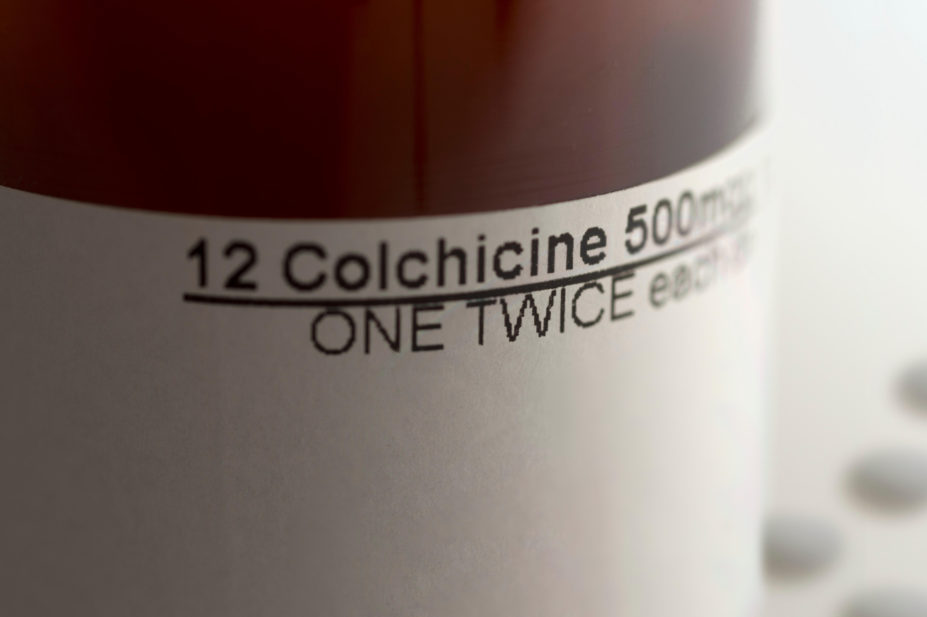
Alamy Stock Photo
Open access article
The Royal Pharmaceutical Society has made this article free to access in order to help healthcare professionals stay informed about an issue of national importance.
To learn more about coronavirus, please visit: https://www.rpharms.com/resources/pharmacy-guides/wuhan-novel-coronavirus
Recruitment to the colchicine arm of the Randomised Evaluation of COVID-19 Therapy (RECOVERY) trial has closed, following a review of the available safety and efficacy data.
The trial’s independent Data Monitoring Committee (DMC) said there was “no convincing evidence” that further recruitment to the arm would provide conclusive proof of worthwhile mortality benefit either overall or in any subgroup.
Colchicine is an anti-inflammatory drug that is commonly used to treat gout and has been suggested as a treatment for COVID-19. However, to date there has been no convincing evidence of the effect of colchicine on clinical outcomes in patients admitted to hospital with COVID-19.
The DMC reviewed data on patients randomised to colchicine versus usual care alone. The preliminary analysis was based on 2,178 reported deaths among 11,162 randomised patients, 94% of whom were being treated with a corticosteroid such as dexamethasone. There was no significant difference in the primary endpoint of 28-day mortality (20% colchicine vs. 19% usual care alone; risk ratio 1.02, 95% confidence interval 0.94-1.11; P=0.63).
Follow-up of patients is ongoing and final results will be published soon.
“The RECOVERY trial has already identified two anti-inflammatory drugs — dexamethasone and tocilizumab — that improve the chances of survival for patients with severe COVID-19, so it is disappointing that colchicine, which is widely used to treat gout and other inflammatory conditions, has no effect in these patients,” said Martin Landray, professor of medicine and epidemiology at the Nuffield Department of Population Health, University of Oxford, and joint chief investigator of the RECOVERY trial.
“We do large randomised trials to establish whether a drug that seems promising in theory has real benefits for patients in practice. Unfortunately, colchicine is not one of those.”
Peter Horby, professor of emerging infectious diseases in the Nuffield Department of Medicine, University of Oxford, and joint chief investigator for the RECOVERY trial, added that this was the “largest ever” trial of colchicine and “whilst we are disappointed that the overall result is negative, it is still important information for the future care of patients in the UK and worldwide”.
In January 2021, early unpublished results from the COLCORONA trial, announced in a press release from the Montreal Heart Institute, suggested that colchicine reduced the risk of death or hospitalisations in all 4,488 patients with COVID-19 by 21%, compared with placebo, although the results only “approached” statistical significance.
In addition, a small randomised trial, involving 72 patients, suggested it reduces the length of both supplemental oxygen therapy and hospitalisation in patients with moderate to severe COVID-19.
Read more: Everything you need to know about the COVID-19 therapy trials


